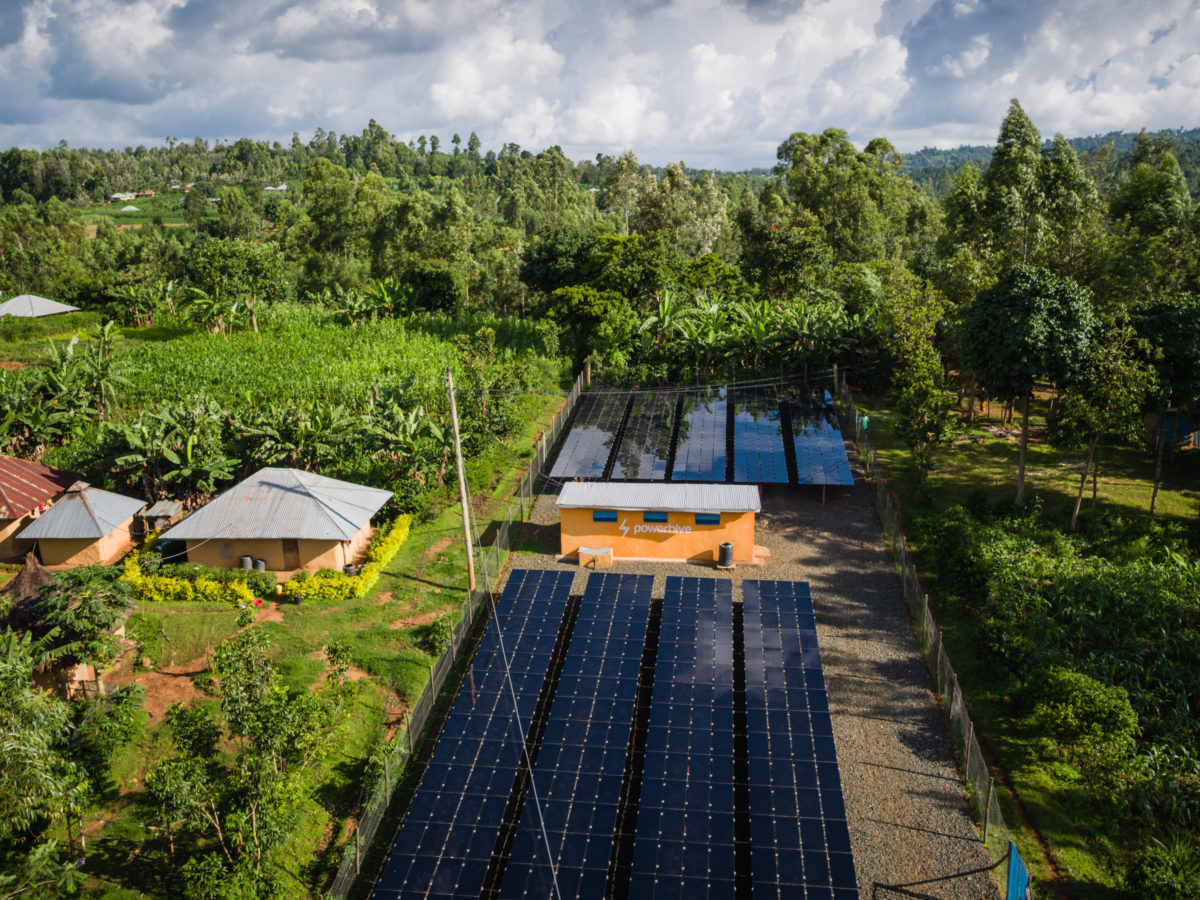With over one billion people today with little or no access to electricity, off-grid solar funding from development banks and institutional investors has not been able to cater to the critical need for electrification, which has slammed the breaks on economic development and prosperity in many parts of the world.
A new business model launched by Sun Exchange, a peer-to-peer solar equipment leasing marketplace, and minigrid solution provider, Powerhive are looking to offer a shortcut to funding with the help of innovative technologies and financial instruments, such as blockchain and digital currencies.
Sun Exchange is focused on crowd selling solar assets to people around the world, which are then leased to communities and businesses for a fee. Under the new partnership, this model will be used to accelerate Powerhive’s solar-powered minigrid rollout in rural Kenya.
Powerhive will be the sole recipient of solar project pre-financing proceeds from the SUNEX digital token sale. The funds will be used to build solar-powered rural electrification minigrid projects, after which the panels will be offered for sale to Sun Exchange members.
In the crowd selling round, solar panels are sold by the single solar cell for as little as $5. In return, investors are able to reap the benefits of owning solar systems in the world’s sunniest areas and earn income, while helping to bring clean, affordable and reliable solar power to communities in need.
“The cryptocurrency community is made up of inspired individuals eager for more than just financial gain. Our partnership with Powerhive underscores the SUNEX token sale opportunity to support a crypto project geared directly towards reducing global inequality and climate impact,” said Abraham Cambridge, Founder & CEO, Sun Exchange.
The Sun Exchange reward system is, nonetheless, very well developed. In addition to being able to estimate the income you can earn from the purchase when placing the order in the crowd funding process, it can also arrange a month lease rental collection and distribution through a blockchain-based payment system.
The members receive 20-year solar cell lease rental payments optionally in Bitcoin or local currency. Moreover, they are entitled to 1 SolarCoin (SLR) for every 1 MWh of electricity generated, and 1 SUNEX Token for every $10 that they spend on the platform. Subsequently, the SUNEX tokens can be staked into the solar project insurance fund, making sure the project is insured against lease default, such as fire, damage and theft.
When fully subscribed, this process is expected to catalyze $23 million of capital that will accelerate Powerhive’s solar powered mini-grid roll out, by funding approximately 150 new projects that will provide power to 175,000 people currently lacking power. If the campaign is unsuccessful, the orders are cancelled and the pledges returned.
“Our partnership with Sun Exchange will now give almost anyone the opportunity to invest in innovative low-carbon development projects in Africa and beyond,” said Christopher Hornor, Powerhive Founder and CEO.
Earlier this year, Sun Exchange announced it had raised $1.6 million in financing from a group of investors comprising Network Society Ventures, South Africa's Kalon Venture Partners and three of the world’s leading technology accelerators, BoostVC (San Francisco Bay Area), Techstars (Boulder, Colorado) and Powerhouse (Oakland, California).
This content is protected by copyright and may not be reused. If you want to cooperate with us and would like to reuse some of our content, please contact: editors@pv-magazine.com.




4 comments
By submitting this form you agree to pv magazine using your data for the purposes of publishing your comment.
Your personal data will only be disclosed or otherwise transmitted to third parties for the purposes of spam filtering or if this is necessary for technical maintenance of the website. Any other transfer to third parties will not take place unless this is justified on the basis of applicable data protection regulations or if pv magazine is legally obliged to do so.
You may revoke this consent at any time with effect for the future, in which case your personal data will be deleted immediately. Otherwise, your data will be deleted if pv magazine has processed your request or the purpose of data storage is fulfilled.
Further information on data privacy can be found in our Data Protection Policy.